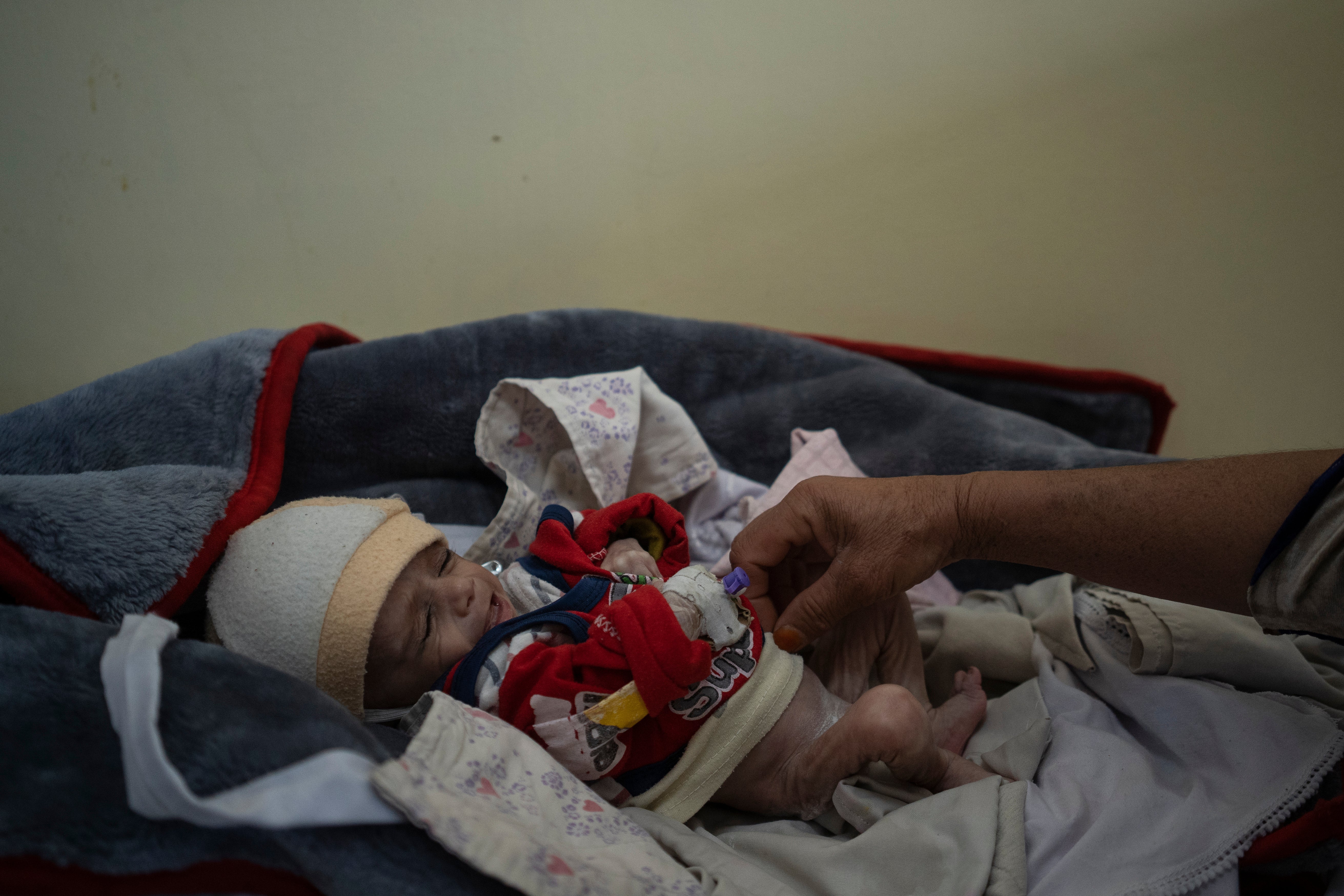As winter approaches, the people of Afghanistan are facing hell on earth
Starvation is spreading across the country as Taliban rule bites harder, and the need for international aid becomes increasingly urgent


Your support helps us to tell the story
From reproductive rights to climate change to Big Tech, The Independent is on the ground when the story is developing. Whether it's investigating the financials of Elon Musk's pro-Trump PAC or producing our latest documentary, 'The A Word', which shines a light on the American women fighting for reproductive rights, we know how important it is to parse out the facts from the messaging.
At such a critical moment in US history, we need reporters on the ground. Your donation allows us to keep sending journalists to speak to both sides of the story.
The Independent is trusted by Americans across the entire political spectrum. And unlike many other quality news outlets, we choose not to lock Americans out of our reporting and analysis with paywalls. We believe quality journalism should be available to everyone, paid for by those who can afford it.
Your support makes all the difference.The room was dimly lit by a small oil lamp in the corner. I could hear the call for evening prayer ringing through the window. He was sat cross-legged on his little leopard-patterned blanket before me, holding the bowl of fried egg in one hand and a teaspoon in the other, I was trying to encourage him to open his mouth. He resisted, struggling to sit still. His eyes were sunken and had no light. His bloated stomach looked larger. Groaning, he kept his mouth closed.
After a few tries and much encouragement, he briefly opened his mouth and I pushed the spoon in, only for him to shut it and bite hard on the spoon. Groaning restlessly, his bite on the spoon grew tighter still, before he let it go. Accepting failure, I picked him up, laid him down in the corner on his blanket and covered him with another. An hour or so later, he was lifeless. My baby brother, Mohammad, had starved to death. He was buried in the village cemetery at dawn.
It was 1997 and to me, a nine-year-old Hazara boy, the death of little Mohammad was not unusual. Our people, in our homeland of Hazarajat, were starving under the Taliban blockade. Hunger was universal. Only the luckiest had just about enough bread to eat. Anything more was an unworldly luxury.
Starvation wasn’t the only cause of death – lack of medicine was another. The memory of having a tooth extracted without anaesthetic still sends shivers down my spine. Nor will I ever forget the cries of the young woman, suffering childbirth complications, being carried on the shoulders of a group of men through thick snow toward the nearest hospital, which even in normal weather was a day’s walk away. Her cries fell silent as we watched from the rooftop. The men turned back to take her to the mosque to be readied for her burial.
The blockade lasted for almost two years, the Taliban repeatedly refusing the UN’s pleas to let aid into the region. Mountainous, unforgiving and with harsh winters, Hazarajat has very little arable land. Many thousands died there.
Back in charge, the Taliban is now forcing the entire country into starvation. Afghanistan is becoming, as the director of the World Food Programme has put it, “the worst humanitarian crisis on earth”. As winter approaches, the people of Afghanistan are facing hell. They’re brutally oppressed and at risk of starvation in their millions.
The Afghan catastrophe is man-made, which should shame humanity. It was avoidable. It could and should have been avoided. We knew, and many of us warned, that it was coming. But we should not forget that the main culprit for this outcome is the Taliban. It is now holding millions of Afghans hostage.
The world is facing a moral dilemma. It has to find a way to get aid into the country without helping the Taliban regime. The group is doing all it can to turn aid into a legitimising ploy for its rule. It is already using aid deliveries as photo opportunities.
The need for aid is urgent and the Taliban is capitalising on this urgency. We must avoid providing assistance to and through the Taliban. The consequences of doing so will only prolong the miseries inflicted on the people of Afghanistan. The international community and aid agencies must urgently create a clear aid delivery framework, which should circumvent the Taliban.
To keep up to speed with all the latest opinions and comment sign up to our free weekly Voices Dispatches newsletter by clicking here
The Taliban must be made to pay for the suffering it is inflicting on the Afghan people, not rewarded. The group is the cause of this tragedy, not the solution or even part of the solution for it.
Every day, we get more and more evidence of horrific human rights abuses committed by the Taliban across Afghanistan. The people of Afghanistan are not mere mouths in need of feeding. They need solidarity and support to rid themselves of the evil inflicted on them. The past months, and the country’s complex history and people, are evidence that the group’s rule won’t last. We have a moral obligation to ensure it does not last long.
My experiences do not compare to what millions of men, women and children are going through in Afghanistan right now. Things don’t have to be this way.
Roh Yakobi is a former refugee, a commentator and an associate fellow at Human Security Centre, an independent foreign policy think tank
Join our commenting forum
Join thought-provoking conversations, follow other Independent readers and see their replies
Comments